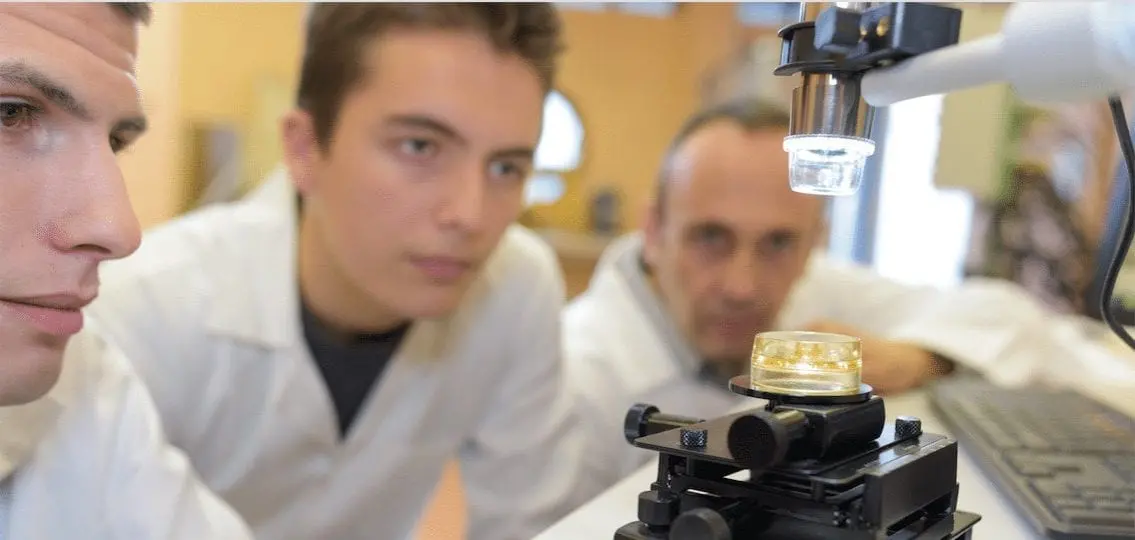Like many undergraduates, Ryan Barrette logged a lot of hours in the classroom and the lab to earn his bachelor’s degree in chemistry. But the Boston-area liberal arts college he attended, Wheaton, also made sure that Barrette received experiential learning in college. As a result, Barrette got the real-world experience he needed to pursue his career goal.
For Barrette, who graduated in 2015, that goal was medicine. Wheaton helped connect him with an internship at Spaulding Rehabilitation Hospital, where he ended up working for three summers. [adrotate banner=”6″]
“It was a great experience from a pre-med perspective,” he says.
There were other opportunities too, such as an honor’s thesis—which required him to spend a year researching alongside a professor—and an undergraduate teaching assistantship.
And after graduation? Barrette says those experiences helped him land a plum position as a research assistant at Harvard’s Brigham and Women’s Hospital, which in turn helped him get into medical school. This fall, he started at UMass Medical.
Benefits Of Experiential Learning
When deciding on a college, students tend to look closely at things like academics, social life, and price, as well they should. But what they—and their parents—might overlook is how well a college will provide opportunities for real-world experience before graduation.
Experiential learning can help students decide on a career, as well as build the specific skills (including soft skills) that employers are looking for.
Internships are particularly impactful. “An internship gives you a chance to test-drive a career and see if it is right for you,” says Jill Tipograph, co-founder of New York City-based Early Stage Careers, which helps recent graduates launch careers.
Internships can also show students what skills and experiences they’ll need for a particular career. Some colleges, like Wheaton, prioritize internships, even offering fellowships to supplement unpaid positions. “It’s important to make sure that students don’t have to pick between employment and an unpaid internship, especially during the summer,” says Renee White, provost of Wheaton College.
“Students begin college with a blank resume they need to fill,” Tipograph stresses. “They should be strategic in opportunities that will provide worthwhile experiences.”
Making Connections
It’s also just really exciting for undergraduates to apply what they’re learning in the classroom out in the real world.
Professor Josh Stenger, who teaches film at Wheaton College, runs a summer program with Mass Challenge, a not-for-profit that provides funding for startups. Stenger’s students spend part of the summer working as in-house creative services for Mass Challenge, providing the startups with everything from videos to front-end web design.
“They are doing hands-on work for clients in the real world and putting into action ideas they are encountering in their classes,” says Stenger. “It really puts a face on business for them.”
His students also walk away with real examples of what they’re capable of. Notes Stenger, “We are clear up front with the startups that we want our students to build portfolios that will help them when they begin their careers.”
What to Look For
Some colleges are now making it a priority to provide students with experiential learning opportunities. For example, at Wheaton, every student is guaranteed funding for at least one internship experience. To get a better idea of what each college offers, here are some things to be on the lookout for:
- Information about what the college’s career services office provides. If you’re on campus when school’s in session, swing by the office and ask to talk to a counselor. What do they offer? How busy is the department? Do they seem helpful and knowledgeable?
- Internship support. Some colleges are creating a network of employers—including alumni—willing to provide internships for students, including paid internships. Be sure to ask the college you’re considering about this.
- Out-of-classroom experience with faculty, like working in labs, traveling with them in the field, or doing other kinds of hands-on work. At Wheaton, for example, students can collaborate with faculty on research. As White points out, “This research often results in student participation at regional and national academic conferences or co-authorship credit on published articles—a notable achievement for an undergraduate.”
- Employment outcomes. This is a tricky thing for colleges to track, but some are trying. How many students found employment within six or so months after graduation? What are they doing? How does it differ by major?




